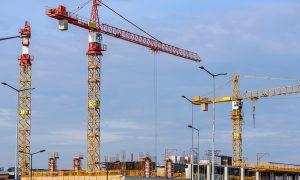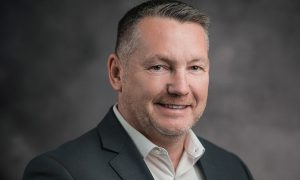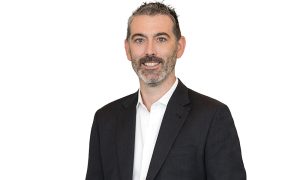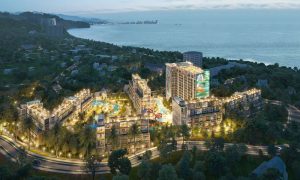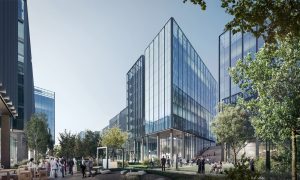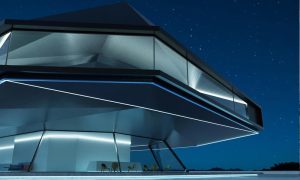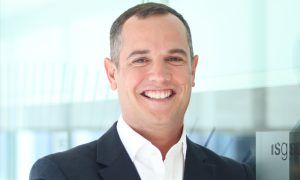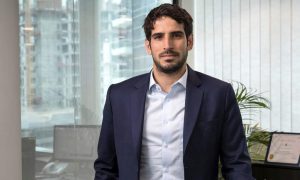Trojan Holding’s Eng Hamad Al Ameri on its expansion – Interview
Trojan Holding’s Eng Hamad Al Ameri onhow he is guiding the burgeoning construction group towards an exciting future
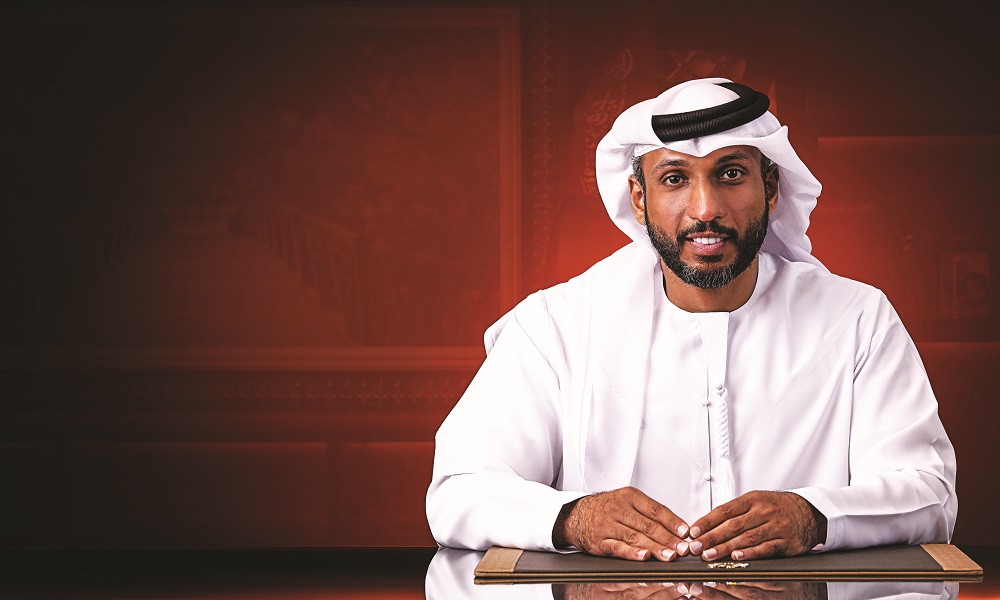
In September this year, a survey conducted by Ventures Middle East Research Division, in association with Ventures ONSITE Project Intelligence Platform, found that suppliers, contractors and consultants in the UAE construction industry share a “generally positive” outlook for the next six months.
Using a specially created Construction Confidence Index (CCI) to examine the general sentiment of the construction sector in the UAE, the survey found that its respondents rated the CCI in the UAE as positive, with 65 points out of 100. Based on a sample of 300 respondents – 70% of which belong to senior management in suppliers, contractors and consultants – the report showed a generally positive sentiment about market conditions.
The overall positive UAE CCI is supported by data which shows that the value of projects awarded to contractors in the first half of 2018 stands at more than $31bn, slightly higher than during the same period in 2017. Furthermore, the improving oil price, and the recent announcements made by the Abu Dhabi and Dubai governments to help the business and real estate sectors, are expected to impact the economy, as well as the construction industry, in a positive manner, it said.
While the results of this survey may come as a bit of a surprise to some, given how the construction industry has struggled in recent years, they are as per the expectations of Eng Hamad Al Ameri, managing director of Trojan Holding.
Having long been a vocal advocate of the stability of the UAE’s construction market, he says that he is unsurprised by the shifting sentiments and asserts that cyclical ups and downs are to be expected and should be planned for.
“There are always going to be ups and downs, and we know that there’s a shorter period for our business cycles. Usually, in other markets, it’s seven to eight years, but here it’s maybe four years before the cycle starts to go up or down,” he says, speaking during an interview at his offices in Trojan Holding’s headquarters in the Al Mafraq Industrial Area of Abu Dhabi.
“I think when an opportunity closes, it offers the perfect opening to start over. I compare it to being on a treadmill, sometimes we have to run and sometimes we have to slow down and catch our breath. These cycles will never end, but our leaders in the UAE are always able to inject energy into the country and make it more attractive to investors and visitors, whether that’s the introduction of new laws, new rules and regulations, or new events.”
While he expresses satisfaction with how Trojan Holding has performed over the last year, with the company growing at a current rate of 8% year-on-year, Al Ameri asserts that there is plenty more work to be done by the construction group. This includes focusing on and developing the new branches and divisions recently opened to take advantage of gaps in the market.
“We know our market and we know what we have to do with regard to efficiency, expansion or even downsizing a little bit, and where to go and what opportunities are open to us when business goes down a little bit,” he says.
“We have opened a number of new branches and divisions. One such division is taking us into real estate development, while our other infrastructure divisions see us concentrating more closely on our water division and electrical division. We are also working diligently to explore hospitality projects further; so, yes, we are adapting and being flexible in response to market demands.”
This diversified approach is paying off for the construction group, with Al Ameri pointing out that several projects in Abu Dhabi and Dubai have been delivered this year. Furthermore, he reveals that there is a pipeline of projects worth $816m in place in Abu Dhabi, including contracts with major developers like Nakheel, Emaar and Aldar Real Estate.
“These project wins are part of my strategy, my five-year plan for Trojan Holding. We are very flexible in our strategy, so that we can move if there’s increased demand in the market – we have to be,” he asserts.
“We’re looking at other regions to work in as well. We’ve just opened in Belarus, there are a few projects there. We’re also targeting KSA as well – there’s a booming real estate sector over there. We’re trying to approach new regions for more expansion.”
Given the opportunities available in the Saudi Arabian market, the immediate focus for the group will be there and he expects to be physically in the market and handling jobs within a year or two.
“If we want to make a meaningful impact in the Saudi market, then we need to start where our strengths lie – that is residential and commercial construction. Only after a successful move into a new market will we look at diversifying into other sectors; KSA is of a size that we will have time to approach new opportunities in due course.”
For now, however, the UAE remains the primary market, and Al Ameri has welcomed recent changes to residential laws by the country’s leaders. In September 2018, the UAE Cabinet announced that it would be introducing a new law that will allow non-Emiratis to retire for five years in the UAE, if they meet a series of requirements. These include having properties worth at least $554,514, savings of at least $272,257, or an active income of more than $5,445 per month.
Furthermore, similar changes were announced earlier in the year which will allow investors and key workers, such as doctors or engineers, access to a long-term residency visa.
With approximately eight million expatriates living and working in the UAE, including a growing number approaching retirement age, Al Ameri feels these changes will only benefit the UAE’s real estate and construction market.
“It is my belief that these changes will have a far-reaching positive impact. In the end, there is demand from the market, and it is clear that our leaders hear these demands and have taken steps to make investing in the UAE real estate market more attainable for expatriates.
“People who live and work here in the UAE, they’d love to stay on in the UAE. By giving them the opportunity to stay and own their own businesses, and expand their residence here, that’s going to create more business opportunities for them, which in turn is going to create more demand for the construction industry overall.”
Another avenue for growth and development is in the UAE’s ambitions of adopting smart technologies and systems. With the government backing companies that are investing in technology, he insists that firms operating in the construction industry must be at the vanguard of change.
“The industry has to focus on becoming more efficient and to deepen its investment in technology. To compete, you have to adopt new technology, it is the most effective way to remain in the game. You have to entrust a new generation to run the sector, and at times even the business itself. Traditional companies, especially here in our region, have to learn to adapt or they will quickly run out of opportunities.
“In other regions, the private sector is always trying to guide all those around them. However, in our region, I think it’s the government that is guiding everybody to jump onboard with new technology and smart communication. I think they’re at a very advanced stage, and we’re trying to catch up with them and to get prepared for the future, just as they’re prepared for it.”
To that end, he says Trojan has been very active in the technology sector. He reveals that the group has invested in developing its own project management and business model software that works at management level. In other sectors of the business, the company is using robotics, such as in its aluminium and woodwork factories, he adds.
“Any new technology that has proven effectiveness within the business will be considered. BIM is already 100% implemented within our company, and across our group. Now we are moving towards looking at what other technologies we can implement, other than what has already been adopted. By putting technology as a platform for our communication, it will ensure frugal spending and make processes faster and more accurate. Cumulatively, this will help us become leaner and more efficient.”
Two years ago, speaking to Big Project ME, Al Ameri spoke eloquently about the need to give young Emirati engineers the opportunity to gain on-the-job experience, if the industry was serious about Emiratisation and using local talent. Having launched an initiative that would see local universities recommend a select group of engineering students to spend time with Trojan’s team of in-house engineers and understand how a construction company works, he now reveals that the initiative has seen great success, with several Emirati engineers now working with the company across all its different divisions.
“We have a lot of success stories, we have a number of Emirati engineers working with us on-site, on the technical teams, in the procurement division and on the management team. I think it [the initiative] is going well. There’s a lot of acceptance from young Emiratis who work in the private sector, and they’re working very hard to try and compete with others.
“I think the locals here are being educated by very good universities and schools. When they graduate, they already are familiar with the latest technology in the market. I have a few engineers here, they’ve already studied Revit and BIM in their schools and universities. They are ready to adopt the latest technology, but you have to put them on the right track to continue – they are ready, prepared and within the standard. I think there’s a huge opportunity for them, the market needs a lot of hires,” he asserts.
With the local industry gearing up for Expo 2020, and several policies and plans in play across the region, Al Ameri reiterates that it is crucial for companies in the industry to continuously look to improve themselves if they are to survive in a rapidly evolving market.
“When business slows, I look to maximise efficiency and how that could improve our situation. When we experience periods of increased business, I encourage the team to continue to explore new sectors and different business opportunities. We are aware that our market is volatile at times, numerous jobs have disappeared recently, and this trend will continue in the future. The same is true for business, it will disappear in the future, so we have to look at where the new opportunities will come from, what is yet to come and what is the future of the industry,” he concludes.

